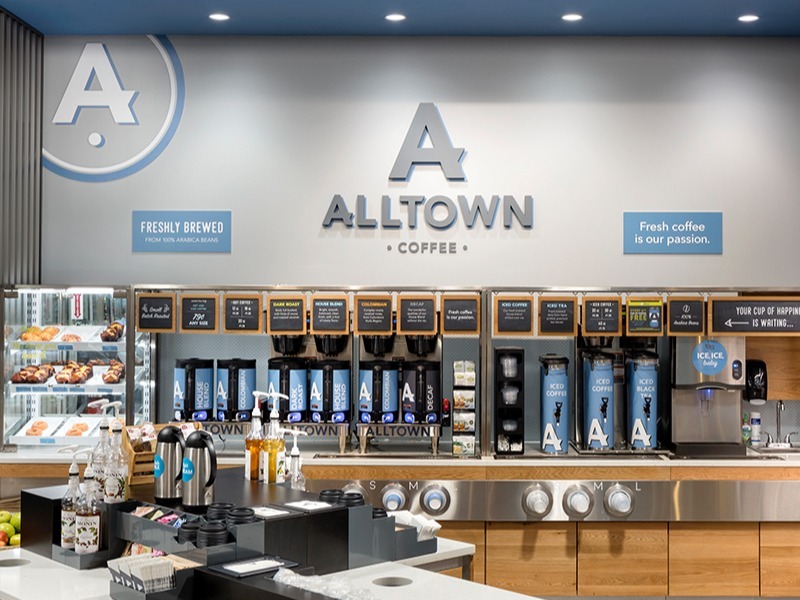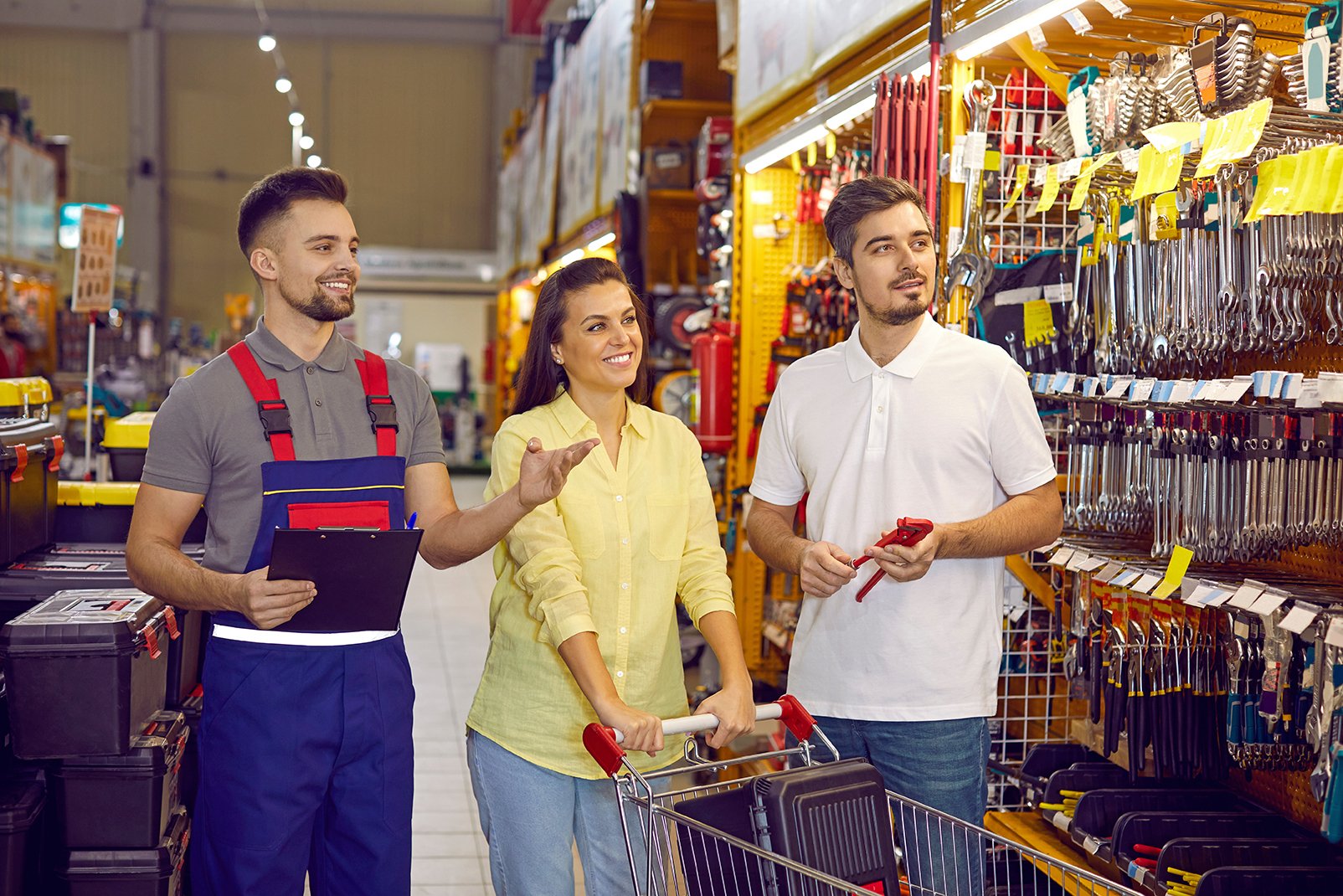NACS Bottom line? Increasing “Inside Operating Profits”
The NACS (National Association of Convenience Stores) Show was fun and informative, but what made it valuable is its embrace of the c-store bottom line.
Just read its “About the Show” webpage: “... four days of learning, buying and selling, networking and fun — all designed to help participants grow their bottom line.”
That’s the rub in all retail. And it’s what Miller Zell seeks and achieves with its retail partners and collaborators, though we’d certainly add the word “long-term” before “bottom line.”
With that front of mind, we have four takeaways from our week in Chicago at NACS:
1. The big C-Store question
2. C-store associate experience touches everything
3. Consistent brand communication, color and elements are a must
4. Innovative technology isn't scary — it’s useful
1. The big C-Store question: How do I grow my inside profits?
Chris Rapanick, the Managing Director of Research at NACS, provided an insightful presentation in his “State of the Industry Updates” that touched on many data points concerning fuel, food, inflation, regional differences, shrink and the rise of the nostalgic shopper.
But you could sense all the eyes and ears focusing intently when he also noted another national trend: “Inside operating profits per transaction are down.”
While good data analysis and product selection provide tangible steps toward solving this c-store challenge, the critical foundation is optimized store design that supports both convenience and discovery in ways that consistently increase basket size. Again, insert “long-term.”
A well-planned store design turns every customer visit into an efficient yet engaging experience. You start with wayfinding that supports fast navigation, then incorporate appealing merchandising and strategic product adjacencies that make impulse purchases and increased basket size feel natural and satisfying for customers.
Modular gondolas and flexible fixture systems allow c-stores to quickly refresh product assortments and respond to seasonal demands. Subtle but critical design details, such as lighting, digital screens, music and consistently upgraded branding and signage, make customers feel comfortable and engaged and ready to participate in growing your inside profits.
C-store bottom-line growth starts with design strategy, as well as an understanding that frequent design refreshes create and maintain advantages compared to your competition.

ALLTOWN: More than a cup of joe. The wafting aroma of freshly brewed and diverse coffee choices enveloped incoming customers, telling them they could get a delicious cup morning, noon or night.
2. C-store associate experience touches everything
The difference in employee turnover between top c-stores and the bottom decile is significant (60.8% vs. 156.3%). Same with manager turnover (17.1% vs. 65.3%).
Obviously, this distance starts with pay and benefits, but this is a critical part of design. A clean, upgraded store is Point A, but this also includes specific associate areas that provide them comfort and satisfaction, as well as store design that makes their jobs easier and more satisfying.
“The difference in employee turnover between top c-stores and the bottom decile is significant (60.8% vs. 156.3%). Same with manager turnover (17.1% vs. 65.3%).”
Happy associates stay with your stores longer. That happiness improves your customer experience in two ways:
1. Associates who are smiling are better than those who don’t;
2. Associates who are smiling are more likely to become loyal, experienced and capable. Then they care about their work and consistently show initiative, which dramatically elevates a store experience.
Moreover, happy, experienced associates will help reduce the ongoing problem of shrink, as well as respond quickly to challenges, such as a bathroom suddenly not being so clean and tidy.
An upgraded associate experience fights turnover, which is directly tied to profits.

3. Consistent brand communication, color and elements are a must
Everyone who attended NACS knows that clean bathrooms are crucial for c-stores. Hopefully, they know that consistent branding and brand communication are as well.
Funny thing: They’re related. Both demonstrate brand pride, attention to detail and a customer focus. And both can foster brand loyalty.
Really. Just type into Google, “What is Buc-ee’s known for?” The top-of-page, AI response is, “Buc-ee’s is known for its giant ‘travel centers’ that feature exceptionally clean restrooms…” And every accompanying image or link includes that smiling, buck-toothed beaver wearing a red baseball cap.
That’s tangible and SEO-connected brand communication.
That critical intertwining of your brand and a specific, positive customer experience pays off in a diversity of valuable ways, from word-of-mouth praise to viral social media hashtags to consistent loyalty that connects childhood to parenthood 20 years down the road.
So, your c-stores offer a wide and customized variety of food and drink that earns social media praise and drives store traffic? That should conjure a brand connection. As in: Customers driving down the road see in their heads that delicious breakfast burrito and/or that obscure but tasty, low-cal energy drink… and it appears in their minds right next to your logo.
That branding effect touches all your locations and footprints. Or it doesn’t.
4. Innovative technology isn’t scary — it’s useful
Artificial intelligence! AI… eeek! Skynet! The Terminator!
Or… just really useful data gathering, data analysis and many other solutions for business friction.
In fact, Babir Sultan, president of FavTrip Grandview, provided an entertaining, down-to-earth NACS presentation called “Tap Into the Real Power of AI,” which used several case studies and practical examples that inspired a lot of engaged note taking.
He noted that AI isn’t just ChatGPT; it’s intelligent security cameras that reduce “shrink,” high-level insights into inventory management, deep analysis of staffing needs, granular data for product and vendor selection and predictive customer behavior analysis.
AI and other forms of cutting-edge technology are tools to improve your stores. Way back when, folks were freaked out by digital cash registers. Oh, and when asked about “what’s next in tech?” Sultan said he suspected it would be robotics.
We know. Another chance for a Terminator joke. But actually he was referring to robots providing stocking and inventory solutions, which every manager and associate — and c-store executive — would be thrilled to deploy.
Why? Because the bottom line at NACS is the bottom line for all retailers who want to grow their base of loyal customers.
You improve your long-term bottom line by providing better products and services while continually upgrading your store design, customer experience and business efficiency. These foster customer loyalty and lead to a transformation where inside operating profits per transaction are consistently increasing